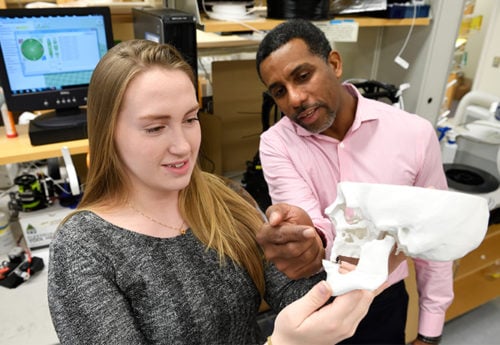Translational Cell & Tissue Engineering develops and translates advanced technologies to enhance or restore function at the molecular, cellular, and tissue levels. In recent years, TCTE has focused on understanding and harnessing the power of stem cells in concert with developing new biomaterials to guide cell behavior and reconstruct tissues and organs ranging from bone, cartilage, liver, pancreas, skin, blood vessels, and peripheral nerve. To complement these efforts, which are designed to meet critical healthcare needs, Hopkins BME researchers are leaders in approaches to not only augment regeneration, but also to treat complex diseases such as cancer, diabetes, arthritis, and neurological disorders such as Parkinson’s and Alzheimer’s disease. This focus area provides students opportunities to work with faculty who specialize in areas that include biomaterials, bioreactors, gene and drug delivery, immunoengineering, regenerative medicine, and stem cell engineering. Student can also participate in research in the Translational Tissue Engineering Center and any other relevant Johns Hopkins research center.
Below, you will find a suggested list of courses to help you in your course planning. Your academic interests determine the remaining courses (focus area electives). You will meet with the faculty lead of your chosen focus area to determine your course plan. The program administrator will provide additional advisement and course approval. Please note that all listed courses are suggested and may not always be offered. Course offerings are subject to change from semester-to-semester.

